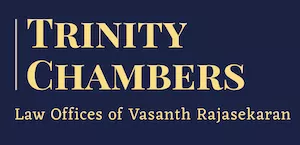Introduction
In a recent decision, the Delhi High Court, in Indian Railways Catering and Tourism Corporation Ltd. (IRCTC) v. Brandavan Food Products Ltd.1, has reaffirmed the narrow scope of judicial interference under Sections 34 and 37 of the Arbitration and Conciliation Act, 1996 ("Arbitration Act"). The case revolved around a dispute concerning reimbursement for the differential cost of meals and beverages supplied under a catering contract. The judgment, delivered by a Division Bench of the High Court, upholds the arbitral award in favour of the Respondent. In this article, we navigate through the facts of the case and the findings rendered by the High Court.
Brief Facts
The dispute originated from a contract between IRCTC, a public sector enterprise under the Ministry of Railways, and Brandavan Food Products Ltd., a private catering service provider. The contract pertained to the provision of catering services on the New Delhi-Dibrugarh Rajdhani Express, awarded under a tender process initiated on May 27, 2013. The Master License Agreement ("MLA") between the parties, executed on April 21, 2014, governed the terms of service, including meal provisions and tariff modifications.
A policy shift occurred when the Railway Board introduced the 'Combo Meal' concept via Commercial Circular No. 63/2013, dated October 9, 2013. This policy aimed to reduce food wastage by replacing the second regular meal with a lighter combo meal. However, within weeks, the policy was reversed through Circular No. 67/2013, dated October 23, 2013, reinstating the second regular meal without altering the pricing structure. The Claimant (Brandavan) contended that this change increased its costs, yet it was not reimbursed accordingly.
Additionally, a Commercial Circular dated August 6, 2014, mandated the supply of a complimentary welcome drink to passengers, without specifying reimbursement terms. Brandavan sought reimbursement for both the additional cost of the second regular meal and the welcome drink. Despite multiple representations to IRCTC, the dispute remained unresolved, leading Brandavan to file a writ petition in 2017, challenging the circulars. The Delhi High Court dismissed the petition on September 23, 2019 as non-maintainable, but granted liberty to initiate arbitration. Brandavan subsequently initiated arbitration proceedings, claiming ₹27.82 crore for meals and ₹5.34 crore for welcome drinks, covering the period from October 2013 to March 2020.
On April 27, 2022, the Sole Arbitrator ruled in favour of Brandavan, awarding it reimbursement for the second regular meal and the welcome drink. The key findings of the arbitrator were as follows:
- On Limitation: The claim was held to be within limitation, as Brandavan was entitled to benefits under Section 14 of the Limitation Act due to time spent pursuing its writ petition in good faith.
- On Waiver and Abandonment: The sole arbitrator held that raising bills without claiming additional amounts did not amount to waiver or abandonment of rights.
- On Dominant Position of IRCTC: The arbitrator acknowledged IRCTC's superior bargaining power, which limited Brandavan's ability to challenge unilateral changes.
- On Tariff Modification Rights: Clause 8.1 of the MLA allowed IRCTC to modify tariffs but did not justify non-payment for services rendered.
- On Computation of Claims: The arbitrator relied on Occupancy Certificates and accounting records to validate Brandavan's claims.
- Interest Awarded: A simple interest at 6% per annum was granted from January 2018, increasing to 9% if payment was delayed beyond four months.
Challenge Under Section 34
IRCTC challenged the award under Section 34 of the Arbitration Act before a Single Judge of the Delhi High Court. The Single Judge upheld the award concerning the welcome drink but set aside the part related to the second regular meal. The reasoning of the Single Judge was as follows:
- On IRCTC's Right to Modify Tariffs: Clauses 8.1 and 1.4 of the MLA granted IRCTC unilateral rights to alter meal pricing, negating Brandavan's claim.
- On Waiver and Estoppel: Brandavan had raised invoices at the lower rate without protest for over 1.5 years before contesting payment, effectively waiving its claims.
- No Coercion Proven: The Single Judge found no evidence that Brandavan was coerced into accepting lower payments.
- On Legality of Tariff Changes: The Single Judge held that since the October 23, 2013, circular set the second meal price at ₹66.50, it could not be altered retrospectively.
- Interest Award Reduction: The Single Judge ruled that interest could not be granted on amounts not due as of January 1, 2018, deeming that portion of the award patently illegal.
Appeal Under Section 37 and Final Judgment
Both parties appealed under Section 37 of the Arbitration Act, leading to the present judgment. The Delhi High Court reaffirmed the limited scope of interference under Sections 34 and 37, and rules as below:
- Welcome Drink Compensation Upheld: The Single Judge's ruling in favour of Brandavan for reimbursement of the welcome drink costs was affirmed.
- Reinstatement of the Second Regular Meal Claim: The Division Bench overruled the Single Judge's decision on this issue and reinstated the arbitrator's award, holding that the price distinction between the Regular Meal and Combo Meal was acknowledged in railway circulars. Further, IRCTC could not retrospectively apply a tariff policy that reduced contractor reimbursement without a contractual amendment. Thus, the arbitrator's findings were held to be neither perverse nor irrational, making judicial interference unwarranted.
- Interest Award Partially Set Aside: The Division Bench upheld the Single Judge's ruling that interest could not be granted on amounts not due as of a particular date.
Comment
The decision of the Division Bench of the High Court has reiterated that judicial intervention under Sections 34 and 37 of the Arbitration Act is circumscribed, preventing courts from reinterpreting contracts unless arbitral findings are manifestly perverse.
Footnote
1. 2025:DHC:772-DB.
The content of this article is intended to provide a general guide to the subject matter. Specialist advice should be sought about your specific circumstances.



